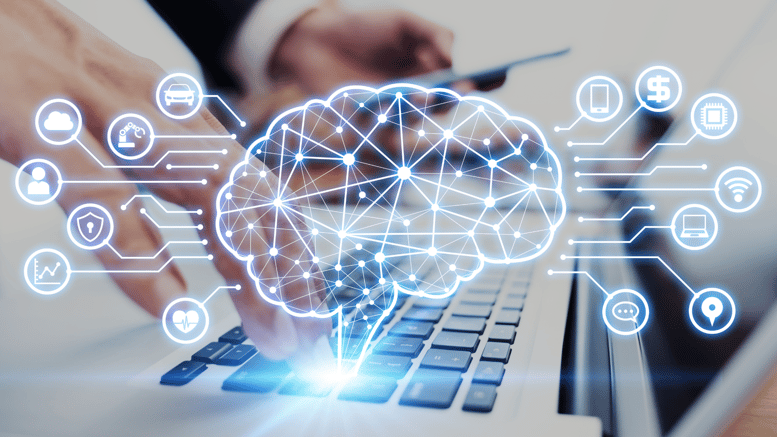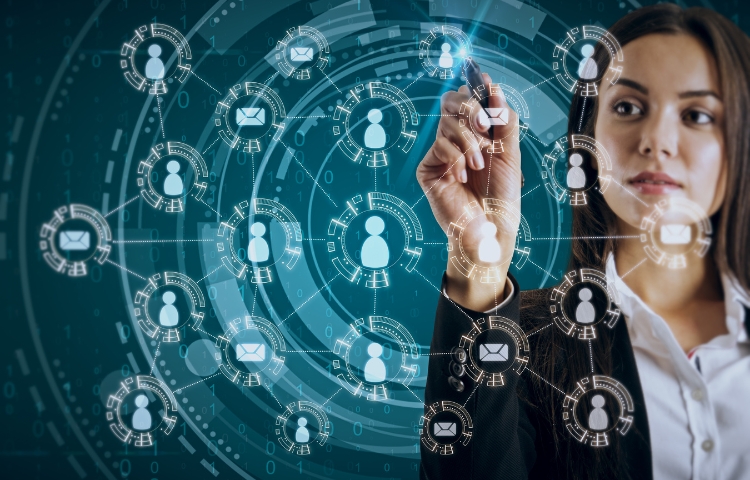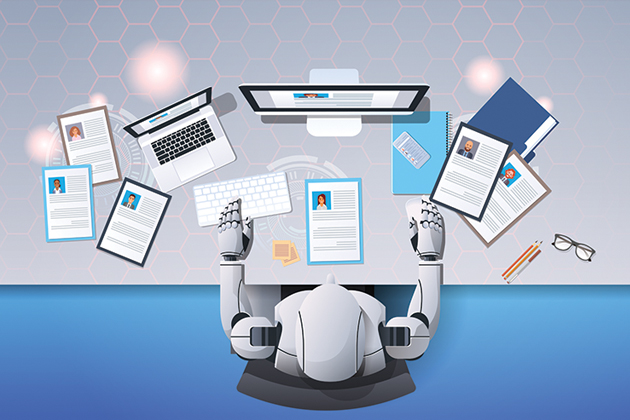In today’s fast-paced business landscape, organizations are constantly seeking ways to improve their operations and drive productivity. One of the most significant advancements in recent years has been the integration of artificial intelligence (AI) into various business functions. AI has emerged as a game-changer in the realm of human resource management, offering a plethora of benefits and automating labor-intensive tasks.
This comprehensive deep-dive into AI human resource tools explores the advantages, use cases, and challenges of implementing AI in HR departments. It aims to equip professionals with the knowledge and insights necessary to harness its full potential and drive organizational success.
Benefits of Using AI in Human Resource Management

The integration of AI into HR management presents a range of compelling advantages that can significantly enhance organizational effectiveness. Let’s take a closer look at some of the key benefits:
Increased Efficiency

One of the primary benefits of using AI in HR is increased efficiency. AI-powered tools can automate repetitive and time-consuming tasks, freeing up HR professionals to focus on more strategic initiatives that drive business value. For instance, AI can be used to screen resumes, schedule interviews, and even conduct initial candidate assessments, saving HR teams countless hours of manual work.
Moreover, AI can also assist in streamlining administrative tasks such as payroll processing, leave management, and employee onboarding. This not only saves time but also reduces the likelihood of human error, leading to more accurate and efficient processes.
Improved Decision-Making

Another significant advantage of AI in HR is its ability to improve decision-making. AI algorithms can analyze vast amounts of data to identify patterns and insights, providing HR leaders with data-driven insights to make informed decisions. For example, AI can analyze employee performance data to identify top performers and predict future success, helping HR teams make better decisions when it comes to promotions and succession planning.
Additionally, AI can also assist in identifying skill gaps and training needs within the organization, enabling HR professionals to develop targeted training programs that address specific areas of improvement.
Enhanced Candidate Experience
In today’s competitive job market, providing a positive candidate experience is crucial for attracting top talent. AI-powered tools can help in this regard by streamlining the candidate experience. For instance, chatbots and virtual assistants can provide instant responses to inquiries, schedule interviews, and even offer personalized job recommendations based on a candidate’s skills and experience.
Moreover, AI can also assist in reducing bias in the hiring process by using data-driven methods to evaluate candidates, leading to a fairer and more inclusive recruitment process.
Top AI Tools for Human Resource Professionals
The use of AI in HR has become increasingly prevalent, with many organizations adopting various AI-powered tools to streamline their processes and improve efficiency. Let’s take a look at some of the top AI tools for human resource professionals:
1. Textio
Textio is an AI-powered writing tool that helps HR professionals create more effective job postings. It uses data from millions of job listings to suggest changes in language and tone that can attract a more diverse pool of candidates. Moreover, it also provides real-time feedback on how likely a job posting is to attract qualified candidates, helping HR teams craft more effective job descriptions.
2. Ideal
Ideal is an AI-powered recruiting software that automates the screening process by analyzing resumes and identifying top candidates. It uses machine learning algorithms to match candidates with job requirements, saving recruiters time and effort in the initial stages of the hiring process. Additionally, Ideal also offers features such as automated interview scheduling and candidate communication, making the entire recruitment process more efficient.
3. Kronos Workforce Dimensions
Kronos Workforce Dimensions is an AI-powered workforce management tool that helps HR professionals manage employee schedules, time-off requests, and payroll processing. It uses predictive analytics to forecast labor demand and assist in creating optimized schedules that meet business needs while also considering employee preferences. Moreover, it also offers features such as automated time tracking and absence management, making it easier for HR teams to manage their workforce.
How AI is Transforming the Hiring Process
The hiring process is one of the most critical functions of HR, and AI has significantly transformed this process in recent years. Let’s take a closer look at how AI is revolutionizing the hiring process:
Automated Resume Screening
Traditionally, HR professionals have spent countless hours manually screening resumes to identify top candidates. However, with the help of AI-powered tools, this process can now be automated. AI algorithms can analyze resumes and identify keywords and phrases that match job requirements, making it easier for recruiters to shortlist candidates.
Moreover, AI can also assist in reducing bias in the resume screening process by focusing on skills and qualifications rather than personal information such as name or gender.
Candidate Assessments
AI can also assist in conducting initial candidate assessments, saving HR teams time and effort in the early stages of the recruitment process. For instance, AI-powered chatbots can ask candidates a series of questions to assess their skills and qualifications, providing HR professionals with valuable insights into a candidate’s potential fit for the role.
Additionally, AI can also analyze video interviews to evaluate a candidate’s body language, tone, and facial expressions, providing a more comprehensive assessment of their suitability for the role.
Predictive Analytics
Another way AI is transforming the hiring process is through predictive analytics. By analyzing vast amounts of data, AI algorithms can predict future job success based on factors such as education, experience, and skills. This not only helps in identifying top performers but also assists in succession planning and talent development within the organization.
Challenges and Limitations of AI in HR
While the benefits of using AI in HR are numerous, there are also some challenges and limitations that organizations need to consider before implementing AI-powered tools. Let’s take a look at some of the most significant challenges:
Data Bias
One of the most significant concerns when it comes to using AI in HR is data bias. AI algorithms are only as unbiased as the data they are trained on, and if the data used to train them is biased, it can lead to discriminatory outcomes. For instance, if an AI algorithm is trained on historical data that is biased towards certain demographics, it can perpetuate this bias in its decision-making.
To address this issue, organizations need to ensure that their data sets are diverse and representative of their workforce and continuously monitor and audit their AI systems for any signs of bias.
Lack of Human Interaction
Another challenge of using AI in HR is the lack of human interaction. While AI-powered tools can automate many tasks, they cannot replace the human touch entirely. In some cases, candidates may prefer interacting with a human rather than a chatbot or virtual assistant, leading to a less positive candidate experience.
Moreover, the lack of human interaction can also make it challenging to build relationships with employees, which can impact employee engagement and retention in the long run.
Cost and Implementation Challenges
Implementing AI in HR can also be costly and challenging. Organizations need to invest in the right technology, hire skilled professionals to manage and maintain the AI systems, and provide training to HR teams to use these tools effectively. Moreover, integrating AI into existing HR processes can also be complex and time-consuming, requiring significant changes to workflows and systems.
Case Studies: Successful Implementation of AI in HR
Despite the challenges and limitations, many organizations have successfully implemented AI in their HR departments, reaping the benefits of improved efficiency and decision-making. Let’s take a look at two case studies of successful AI implementation in HR:
IBM
IBM has been at the forefront of AI adoption in HR, using AI-powered tools to streamline its recruitment process. The company has implemented an AI-powered chatbot named “Mya” to assist with initial candidate assessments and scheduling interviews. This has reduced the time taken to screen candidates by 75%, leading to a more efficient recruitment process.
Moreover, IBM has also used AI to analyze employee data and identify top performers, leading to better succession planning and talent development within the organization.
Unilever
Unilever, a global consumer goods company, has successfully implemented AI in its HR processes to improve efficiency and reduce bias. The company has used AI-powered tools to screen resumes and conduct initial candidate assessments, saving recruiters time and effort. Moreover, Unilever has also implemented AI in its diversity and inclusion efforts, using data-driven methods to identify areas of improvement and create more inclusive hiring practices.
Conclusion: The Role of AI in Shaping the Future of HR
The use of AI in HR is rapidly evolving, and its potential for transforming the way organizations manage their workforce is immense. From improving efficiency and decision-making to enhancing the candidate experience, AI offers a range of benefits that can significantly impact organizational success.
However, it’s essential to consider the challenges and limitations of AI in HR and ensure that its implementation is ethical and unbiased. With the right approach and continuous monitoring, AI can play a crucial role in shaping the future of HR and driving organizational success.